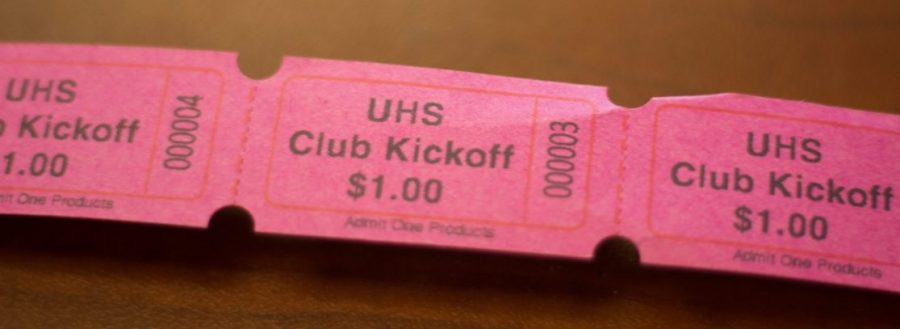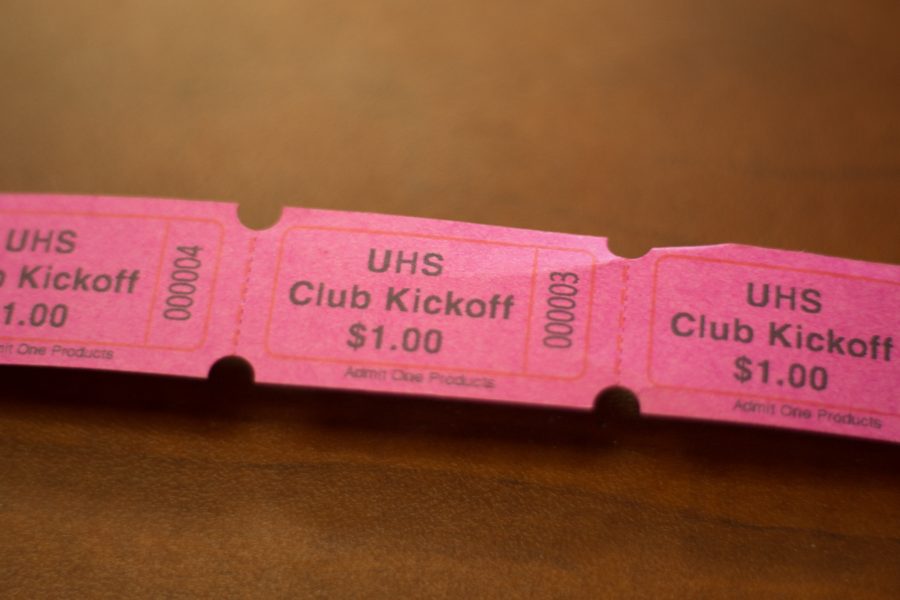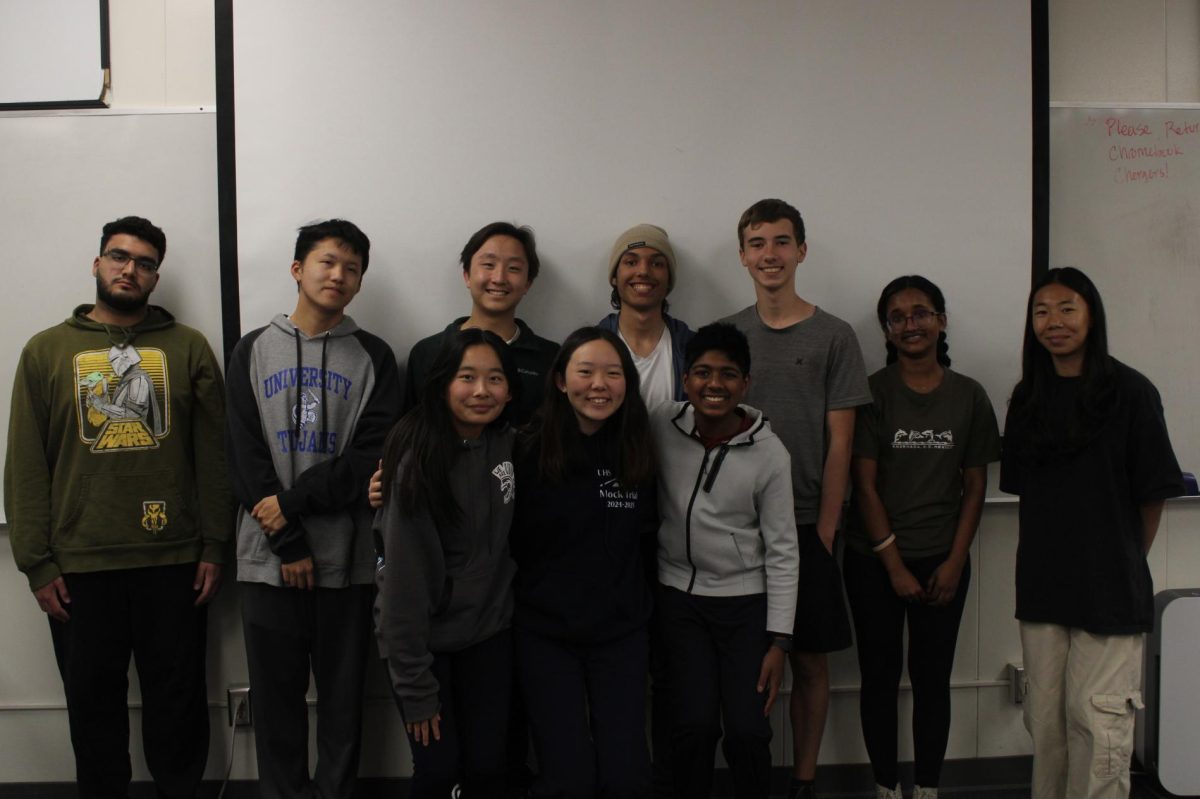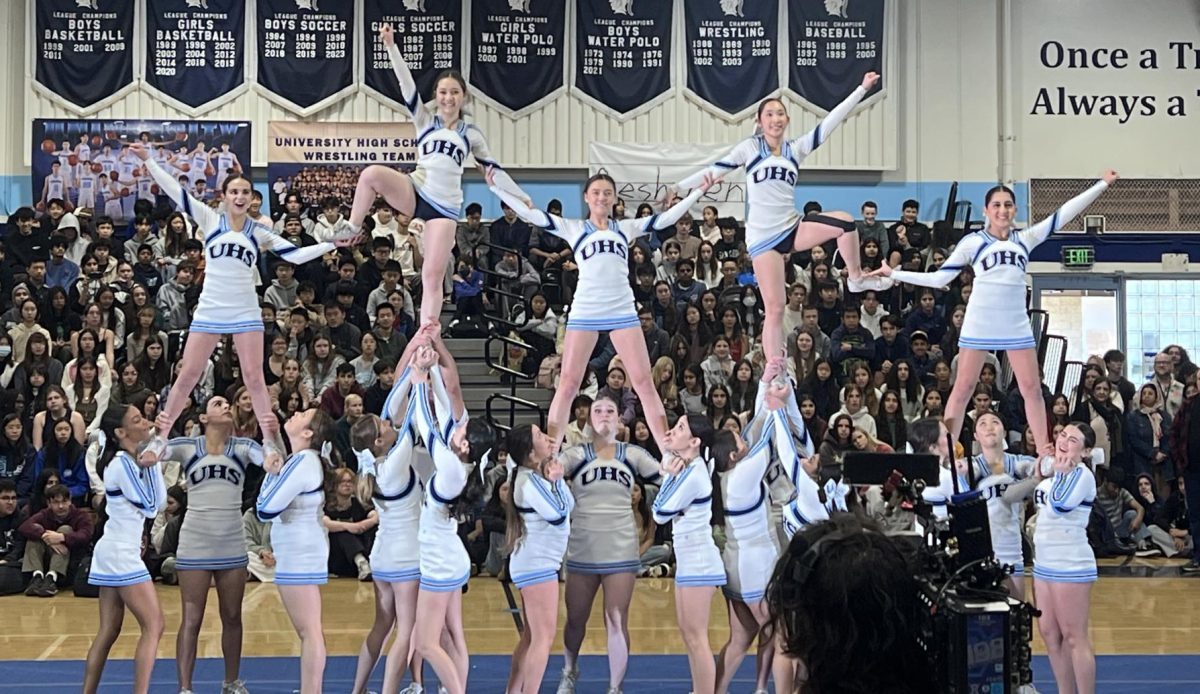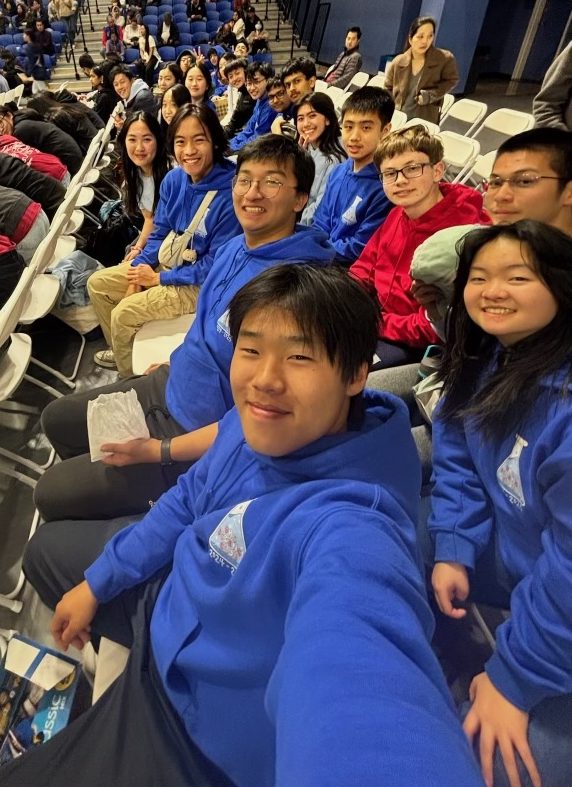Custom created tickets with a $1 cash value will be sold as a currency for Club Kick-Off. (Bethany Huang)
By RACHELL CHON
Staff Writer
Due to the controversial nature of this ongoing issue, several club Board Members from academic, competitive, interest and service clubs agreed to be interviewed under the condition of anonymity.
Changes in Club Kick-Off sales procedure that require cash-valued tickets to be used instead of cash has sparked a backlash among many club leaders and consumers.
In years past, students have used cash to directly purchase food from clubs. However, instead of using cash to buy food this year, students are now mandated to use utilize ASB tickets with a $1 cash value, according to ASB Treasurer Michael Wu (Jr.).
The new ticketing system, according to ASB, is aimed to createat creating safer transactions and more organized sales.
“The responsibility is lessened, in terms of the safety of money, which is why we are using the tickets this year,” Clubs Commissioner Vignesh Iyer (Sr.) said. “Everything is ticketed, so there will be no physical money involved.”
However, many club leaders and consumers have expressed concern over the benefits of the new ticket system as well as the reasons for its introduction.
“If we just used money instead, there is no need to switch our tickets for money and vice versa.”“The fear that money will be misplaced is an irrational fear because tickets can also be easily misplaced and lost,” the Treasurer of an interest club said.
“I think the ticket system is an unnecessary solution to a non-existent problem. I see no reason why this ticket system should be implemented after many years of using normal money at Club Kickoff,” the President of one of UHS’s largest service clubs said.
The change in purchasing protocol was spearheaded by ASB upon request by the Student Activities Center and the school administration.
“[It is about] safety issues [and] theft. No one is going to steal tickets from you but people will steal money,” Student Activities Center Clerk Ms. Cidne Rector (Staff) said.
Many club leaders question the reasoning for the implementation of a cash-valued ticket system for these two reason. UHS has held Club Kick-Off for years, without notable disappearances of cash or instances of scandal.
In addition to questions posed regarding the reasoning behind making the ticketing shift, many Club leaders and consumers have expressed concern over the effectiveness of prepaid tickets.
Iyer clarified that there will be plenty of opportunities to purchase tickets throughout the week before Club Kick-Off and during Club Kick-Off itself.
However, some point out flaws in the notion that consumers can easily purchase more tickets from the tables if they run out.
“Even though the tickets are being sold during the event, I predict the lines will be quite long like it has been in previous years, leaving little time to actually look around and buy food,” a Vice-President of one club and Treasurer another said. “People who buy too few [tickets] will be less likely to stand in long lines to get more tickets. This will decrease club revenue as there will be less spending customers,”
Many clubs on campus are reliant on consumer spending and Club Kick-Off profits to fund activities and programs for the rest of the year. The concern of many club leaders that people will purchase less overall as a result of the inflexibility of the ticket system, then club programs throughout the year may not have the funding they need.
“[The new system] will decrease sales, and in turn, profits for clubs,” a service club President said. “We depend on this event for our funding throughout the year, and if students are restricted by their pre-bought tickets, they will be less likely to make additional purchases and decrease potential profits.”
However, ASB maintains that the tickets do not restrict the number of purchases or dissuade students from spending more at Club Kick-Off.
“On the day of Club Kick-Off, there will be two tables throughout Club Kick-Off if you run out of tickets,” Iyer said.
In addition to the concerns from the club revenue perspective, there are other concerns from the consumer spending perspective.
“For the consumers it’s going to bring a lot of complications,” prospective Club Kick-Off consumer Ashley Yang (Jr.) said. “I’m afraid that I’ll forget my tickets at home or lose them halfway through the event since it’s always really crowded and hectic. Also, it’s going to be really complicated to buy the tickets since essentially we’re waiting in line to pay for waiting in line a second time.”
Unlike cash, unused tickets tickets that are unused at the end of the event do not retain their value and cannot be exchanged for a reimbursement, meaning consumers who overbuy tickets may potentially lose their money that consumers who overbuy tickets have the potential to lose money without purchasing food.
“Students will be unsure of how many tickets to buy for the day, Who knows what they will want to buy on that particular day?” a service club President said. “They may realize that they do not have enough tickets for the food that they want — or they may not use some of their tickets, essentially throwing them away.”
However, ASB does not see the tickets as a drawback in this situation.
“If you overbuy, you can’t be reimbursed for your tickets but you can give it to clubs that you support rather than throwing them away,” ASB Treasurer Michael Wu (Jr.) said.
“Make sure you don’t overbuy and be mindful of how many tickets you get,” Iyer said. “[Each year], the average person doesn’t usually spend more than $15 during Club Kickoff.”
However, club leaders are worried about the warning by ASB not to overbuy tickets. Many clubs see this recommendation as a recommendation to buy less, thus driving down profits even more.
“There has been a lot of backlash from many clubs about the new system which we recognize, but we are simply implementing them to help both the clubs and the school stay organized and prevent cash from being lost, which ultimately affects the school as a whole as well,” Wu said.
“Tickets are far smaller than dollar bills and more likely to get lost or [even] get blown away by the wind. An ASB treasurer himself pointed out that people are more reckless with money when they are not actually spending the money; Clubs are going to be more likely to be less careful with these tickets,” a Vice-President and a Treasurer of one academic and one competitive club said.
“It makes the whole system more complicated for the buyers, treasurers and the clubs themselves,” the Treasurer of the interest club said.
In the end, the confusion and backlash concerning the new ticketing system may push customers away from purchasing food at the event.
“I think the ticket system will make Club Kickoff less popular among students who may decide it will be easier to go off campus for lunch rather than to bother with the ticket system,” a service club President said.
However, the true benefits or consequences of the new ticketing system will only be known once the protocol is put into action.
Club Kick-Off will occur on Friday, September 30th during Lunch on the Stadium blacktop.



